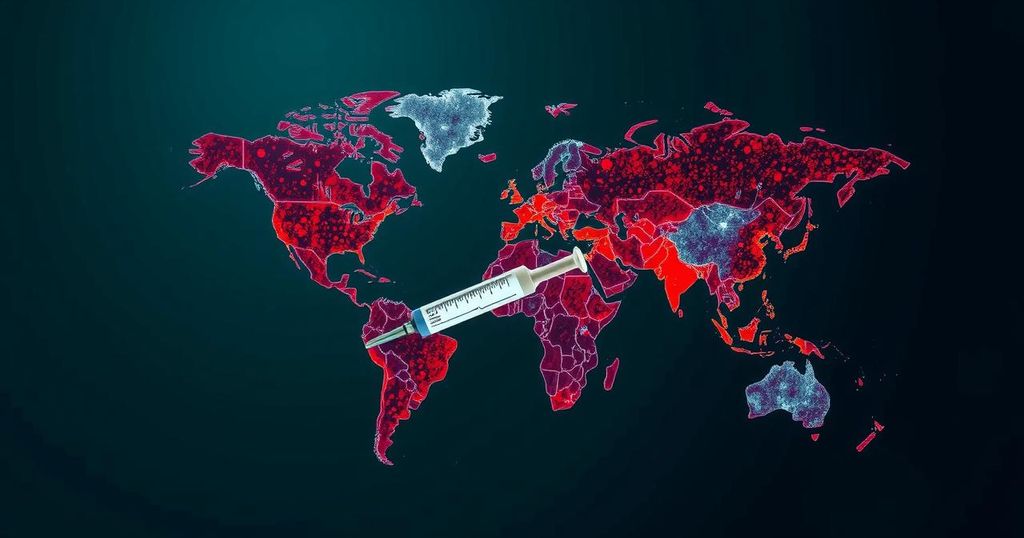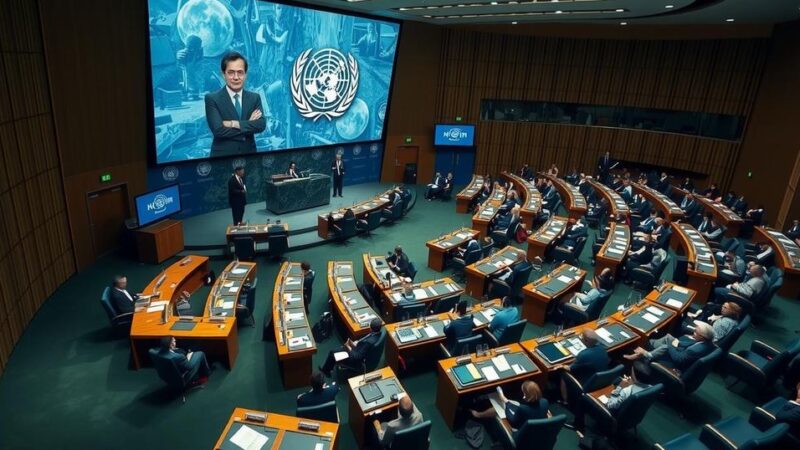As the COVID-19 pandemic revealed vast disparities in vaccine access, researchers in Africa, Asia, and South America, in collaboration with the WHO, initiated the mRNA vaccine technology transfer hub. This project aims to develop local capabilities for mRNA vaccine production against COVID-19 and other diseases, thereby ensuring that future health emergencies can be met with self-sufficient, regional solutions. Despite challenges, the initiative reflects a commitment to overcoming systemic inequities within global health.
During the COVID-19 pandemic, the critical disparity in vaccine access became evident, as wealthier nations prioritized their own needs, leaving regions in the global south to fend for themselves. In response to this inequity, researchers from Africa, Asia, and South America collaborated with the World Health Organization (WHO) to launch a proactive initiative aimed at developing their pandemic preparedness and vaccine production capabilities. This effort, called the mRNA vaccine technology transfer hub, encompasses a consortium of companies and research institutions from 15 middle-income countries, focused on producing messenger RNA vaccines not only for COVID-19 but also for other diseases in the future. While the urgency prompted by the pandemic has ebbed and global attention diverts to other crises, such as the war in Ukraine, the hub’s participants remain committed to their mission. A recent gathering at the WHO’s World Health Assembly highlighted the ongoing necessity for this initiative, particularly in light of the over one million fatalities caused by vaccine disparities in 2021. Experts, including Ayoade Alakija from the African Vaccine Delivery Alliance, emphasize that this inequity reflects profound injustices within global health systems that must be addressed to prevent future pandemics. Successful elements of this initiative involve collaborations among smaller, local pharmaceutical companies that prioritize regional needs over profit-driven motives common in larger corporations. These hubs, established in countries like Brazil, India, and South Africa, are now equipped to develop mRNA vaccines tailored for various health threats. Despite lacking funding support from the United States, the initiative has garnered financial backing from Canada, France, and the European Commission. Leading virologists, including Barney Graham from the National Institutes of Health, advocate for the importance of these hubs in addressing emerging infections, emphasizing a collaborative approach to public health crises. However, challenges remain beyond the development of vaccine production facilities. The overarching goal is to rectify systemic inequities in global health, which have historically left developing nations dependent on external sources for essential health technologies. Utilizing mRNA technology, characterized by its simplicity and efficiency compared to traditional vaccine methods, represents a potential turning point in how vaccines are developed and produced. With countries like Brazil, Africa, and Bangladesh investing in their hubs, future research will focus on various targets, including tuberculosis and rotavirus.
The COVID-19 pandemic exposed stark inequalities in global health, particularly regarding the distribution of vaccines. Wealthier countries were able to acquire vaccines en masse, while poorer nations faced significant delays, resulting in catastrophic outcomes. This inequity was not merely a logistical issue but highlighted broader systemic problems within international health frameworks. In response, a coalition of researchers and organizations in the global south launched the mRNA vaccine technology transfer hub, aiming to establish localized vaccine production capabilities that are self-sufficient and responsive to regional health needs. By focusing on mRNA technology, which allows for quicker development and smaller operational scales, this initiative seeks to empower these nations in future health crises.
In essence, the mRNA vaccine technology transfer hub represents a significant shift in how developing nations can respond to health emergencies, fostering independence from larger pharmaceuticals and promoting equitable vaccine access. The collaboration among local institutions, supported by international funds, establishes a foundation for producing vaccines tailored to specific health challenges while also addressing the broader issues of global health inequity. By transforming the landscape of vaccine development, this initiative signals a move toward a more just and equitable future in global health.
Original Source: www.washingtonpost.com






